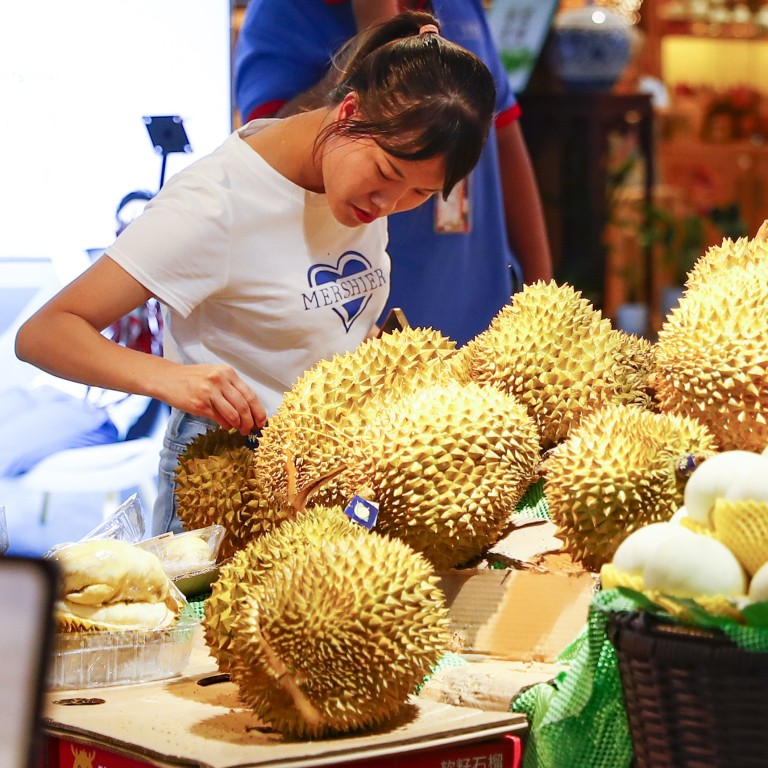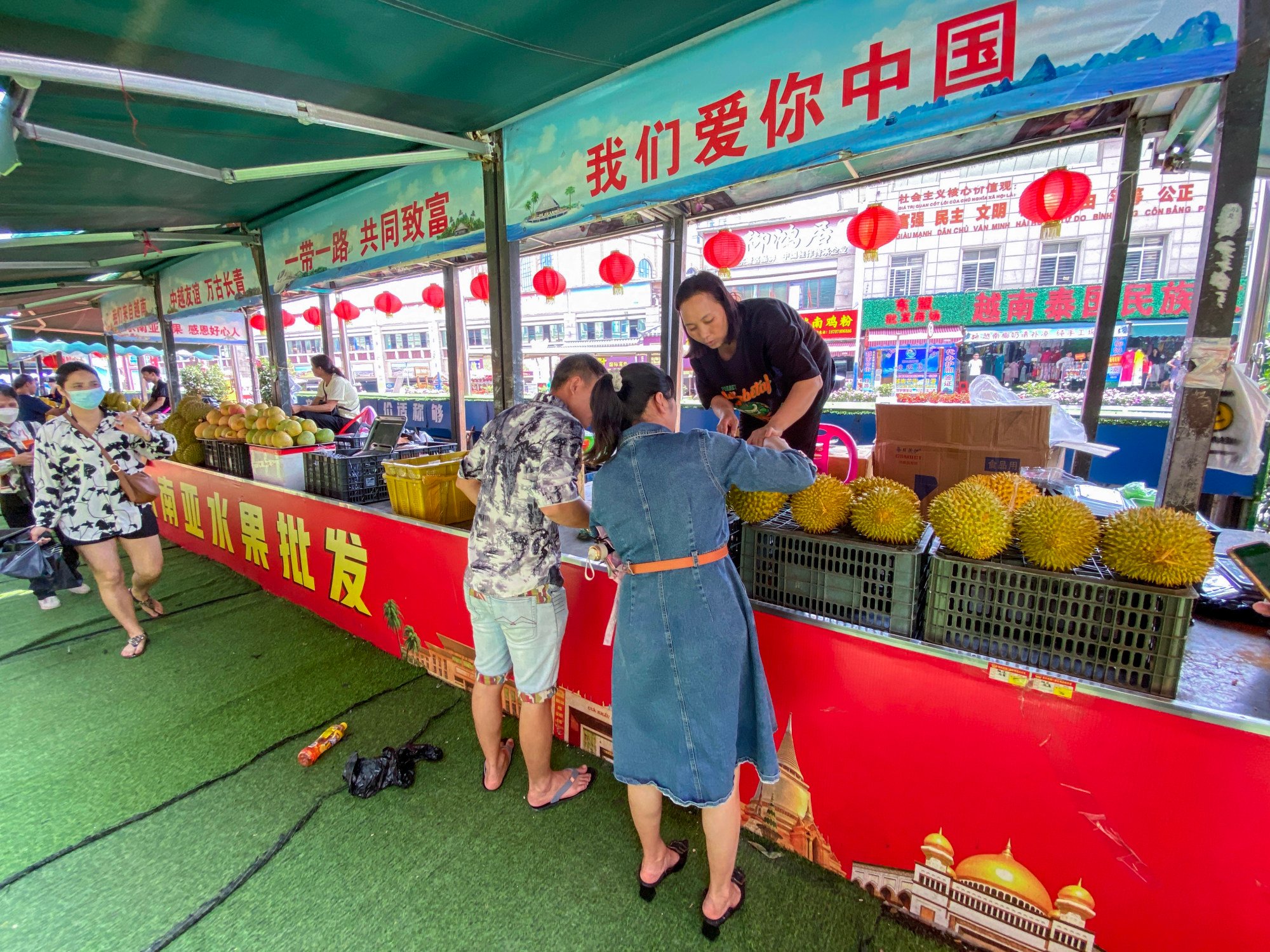
Sweet smell of Vietnam’s durian export success shows China’s regional influence cannot be ignored
- The US is turning to Vietnam in its attempts to diversify supply chains and curb China’s regional influence, but that is easier said than done
- Vietnam’s booming durian exports are just one example of its close economic dependence on China, complicating US ‘friendshoring’ efforts
And with more US companies exiting China yet keen to maintain a presence in Asia, its strategic significance is set to grow.
As Tuan Quang Phan, an associate professor at the University of Hong Kong Business School, puts it, China has a “critical role to play with its southern partner”.
Global sales of durian have risen during the past nine years, and most of them were consumed by hungry Chinese. According to data from WorldTrade, global imports of durian amounted to US$4.66 billion in 2022, of which 86 per cent went to China.

China’s love for durian even managed to endure the Covid-19 pandemic as imports jumped from US$1.6 billion in 2019 to US$4.21 billion in 2021 – a period in which demand for other products across most mainstream sectors was muted.
While people’s taste for durian is starting to grow in other markets around the world, from a logistics standpoint, the short distance between China and Vietnam means there are cost savings to be had.
The love affair over durian between China and Vietnam is a good example of how China’s influence in the region cannot be understated, even as relations between the US and Vietnam evolve.
After all, Chinese exports to Vietnam have jumped at an annual rate of 22.1 per cent, from US$718 million in 1995 to US$129 billion in 2021, according to data from the Observatory of Economic Complexity.
What’s that smell? Asia’s obsession with durian is ripening fast
Moreover, Hanoi has to rely on Chinese imports to support its own sales of goods to the US, particularly in vital sectors such as mobile phone manufacturing. Vietnam might be the world’s third-largest mobile phone manufacturer as of 2022, but it still needs China to manufacture intricate components.
Vietnam’s delicate balance between the economic powerhouses of the US and China is akin to the careful cultivation of the durian. While complex and layered, it can yield rich rewards when managed correctly. Vietnam’s prowess in the global trade landscape demonstrates the fruits of astute diplomacy and economic strategy.
Sonja Cheung is editorial director at the Asia Business Council. She holds a BA (Hons) in classics from University College London, and a master’s degree in Chinese Studies from SOAS University of London


